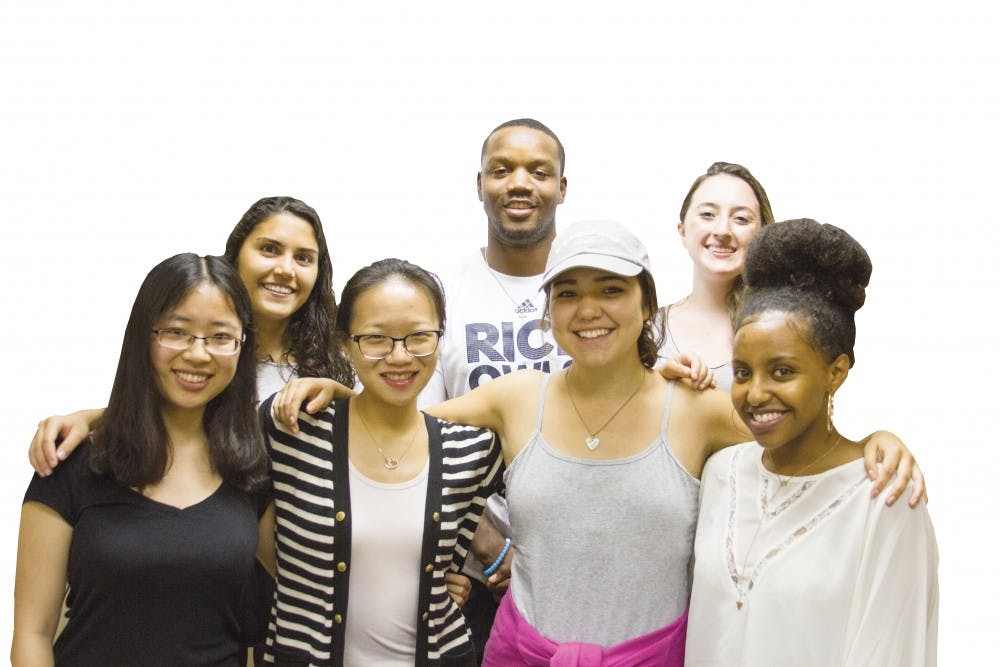Rice needs religious pluralism, not tolerance

(Sherry) Siqi Ning is a Duncan College senior, Camilia Perez is a Baker College senior, Qianru (Charie) Xiong is a Sid Richardson College junior, Chad Tatum is a Martel College junior, Sandra Lopez is a Sid Richardson College junior, Hayley Clark is a Baker College junior, and Mekedlawit Setegne is a Brown College sophomore
As Rice students, we pride ourselves on being a part of such a diverse population. We have multiple forums via which we can have meaningful conversations surrounding sensitive topics. Topics such as race, ethnicity, socio-economic status, sexual orientation and gender identity all find a place in our day-to-day experiences. Yet it seems that throughout our campus one very important topic has been pushed to the periphery of student life: the “R” word, religion.
In Orientation Week, residential colleges and most classes, religion
Oftentimes religious minorities receive the greater share of intolerance. The question then becomes, who identifies as a religious minority? Our survey revealed that almost 36 percent of our respondents self-identified as a religious minority on campus. Some respondents who belong to the more prevalent religious groups on campus, such as Christians, still identify as religious minorities. This indicates that the size of their religious community is not the only reason students identify as religious minorities. Students who self-identify as religious minorities may experience a lack of structured organizations on campus, O-Week discomfort, lack of access to places of worship, insufficient diet accommodations at serveries or overall feeling of an absence of religious support on campus. One thing is for sure: None of these problems are going to be solved without engagement. We, as students, will continue to face these issues until we can initiate and engage in meaningful conversations that cultivate openness.
The fear of different worldviews and beliefs butting heads keeps many students from maintaining an open dialogue. In one interview, a respondent claimed, “We need to be careful about being too open about religion. There is a possibility of tension and it might not always be so friendly and positive.” Although it is scary to break the “politeness” underlying the silence, not engaging in these discussions will only perpetuate the status quo. For too many students who feel marginalized, this status quo is simply not working.
Part of the problem is figuring out how to approach the concept of inter-faith relations. We have all heard we should be religiously tolerant of others, but tolerance only scrapes the surface. Tolerance allows us to draw lines, defining us as “us” and others as “them,” while not taking steps to break down barriers of miscommunication and illusions. Another term more closely embodies our values here at Rice University. Religious
More from The Rice Thresher
Rice University philosophy professor Tim Schroeder on textbook piracy
The question of the week asks, “Is it ethical to pirate textbooks for my college courses?”
Recent H&D decisions are eroding trust between students and administration
What you read below was intended to be presented at the Housing and Dining Town Hall on September 1, 2 to 4 p.m. Instead of presenting this, students patiently waited in the heavy downpour, expecting their voices to be heard, but a formal cancellation of the Town Hall was not issued until about half an hour afterward via Instagram.
Make Rice a tailgating school again
What seems to be the last Bayou Bucket Classic is in three days. Will students show up for the crosstown rivalry?


Please note All comments are eligible for publication by The Rice Thresher.